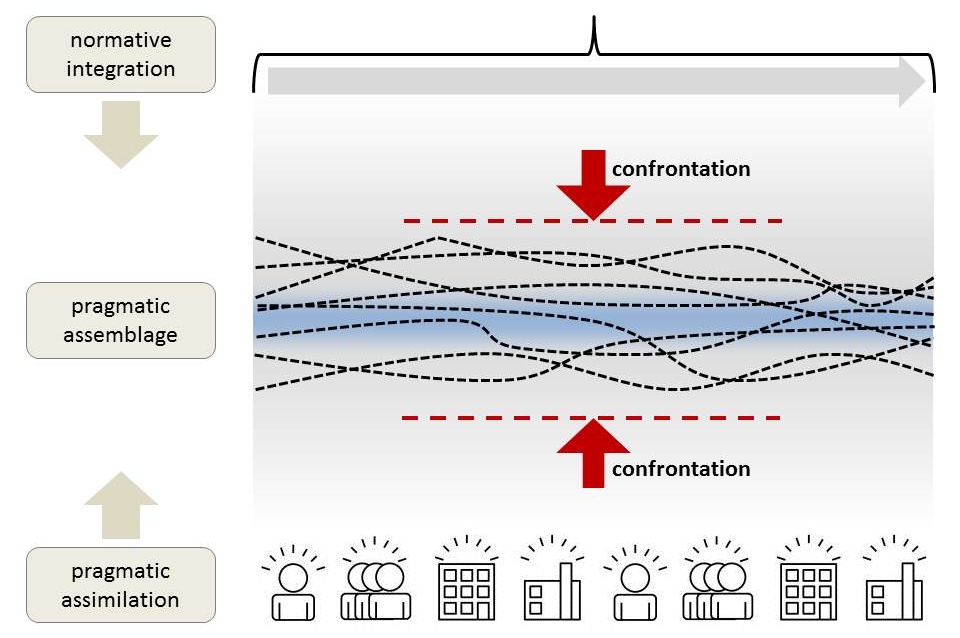This paper was presented on 5 October 2012 at the 2012 Conference on the Human Dimensions of Global Environmental Change at the Free University of Berlin. It proposes an alternative qualitative vision on sustainable development that could inspire a global ethics for societal development and intergenerational accountability and, at the same time, expose specific responsibilities for policy, the private sector, science and civil society. The vantage point would be viewing sustainable development as a convergence of interests on three ‘policy levels’:
Normative integration: a ‘meta-level’ that starts from an interpretation of the concept of sustainable development as a meta-norm under which every human socio-economic activity would need to ‘fit’;
Pragmatic assemblage: a ‘medium level’ that concentrates on the ‘building blocks’ of sustainable development and their interrelation;
Pragmatic assimilation: a ‘ground level’ that focuses on how and why specific actors formulate own responsibilities and (eventually) take corresponding action;
The motivation is that, whatever our stake or concern is as citizens, communities, companies or institutions, we all have a joint interest in making these levels ‘work’. The challenge for sustainable development governance is then to ‘succesfully connect’ the levels, as this would unveil specific requirements for the way we make sense about our behaviour and rationalise it in view of the totality. Today, the political view is that ‘we know what (science tells us) to do’ and that governance is about organising our ‘good intentions’ into a coherent totality (see ‘the green economy’). The general assumption is that this is a complex but feasible exercise ‘if everybody shows political will’. This contribution argues that this approach is wrong, as this still provides ways for actors to escape specific responsibilities that are crucial for sustainable development. The paper elaborates on why and how the three-level picture of sustainable development governance would also make explicit these responsibilities and sketch required institutional approaches for a ‘politics of confrontation’ that would set this view in practice.
Read on at the research website of the ‘The Possibility of Global Governance’ project.



